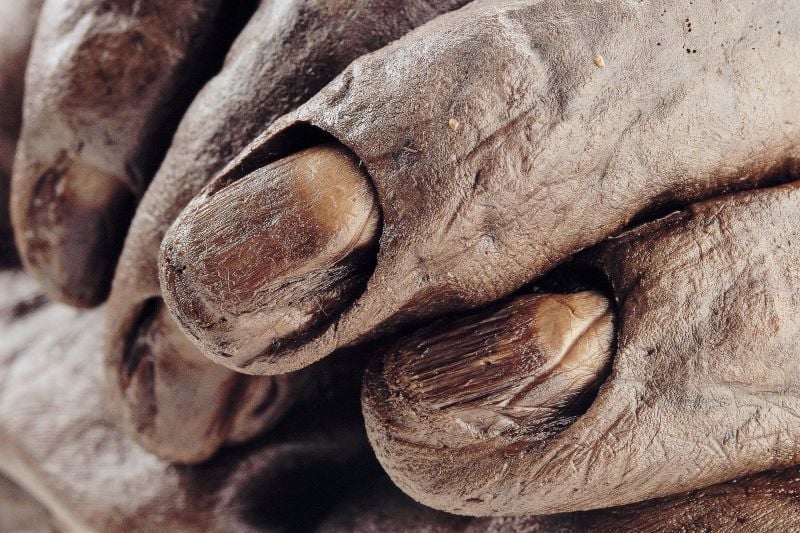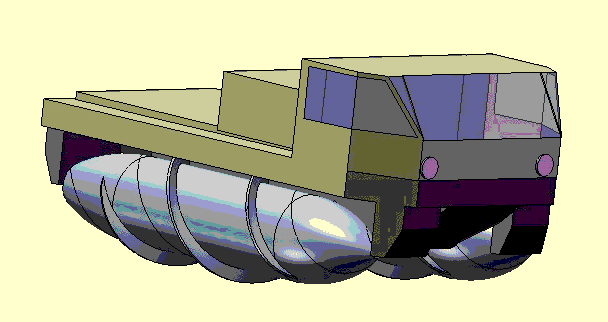Naval gunfire support if allocated (4.5" guns from frigates and destroyers); this was generally one ship per commando, directly called in. Very efficient, very quick, very accurate. Enough for what we needed.
Harrier ground support was minimal. Essentially, the Harriers were used to knock down or drive off Argentine air assets.
Then the usual stuff carried by the Mark 1 Human Boot.
@Father Maryland above gives a pretty fair summary.
The trouble with fortifying the landing sites is that there are a lot of them. Defending them all spreads the troops thin. Defending only some leaves some undefended. And RM doctrine is to land where they aren't.
Essentially, yes. Royal Marines are, to give the full title, Royal Marine Commandos, and the battalion designator is "Commando" (40, 42, 45 Cdo). Light infantry in make-up, and trained to act like a D&D Rogue with sneak attacks.
Of course, given the weight we carried, a "light" designation was a bit of a joke, but never mind. "If you can't take a joke, you shouldn't have joined."
USMC is designed to go in hard and fast and over-run primary defences with the support of overwhelming firepower. The Royal Marines don't have access to that level of supporting firepower, and have to rely on being sneaky.
***
You asked for it.
For those who do not feel the need for description, you are advised to look elsewhere.
Brigadier Julian Thompson, in his book
No Picnic, describes the Royal Marines as "uncomplaining." I hesitate to call my former superior officer a liar, but I would not describe No 2 Troop, K Company, 42 Cdo as "uncomplaining." Napoleon once described his Old Guard as "the Grumblers", but they had nothing on my boys, who complained from the day we left England to the morning of 12 June, after which I kind of lost interest in proceedings on account of forgetting to duck.
I am now about to prove Thompson wrong again.
Firstly, there is nothing between the Falklands and the Antarctic, so whenever the wind blows from the South, it is coming straight off the Antarctic. It was winter, so it was cold. It always rained, except when it snowed, but the snow wasn't that nice snow that you make Sergeant Frosty's out of in a crisp, white morning. It's that snow that is half-way between snow and rain, carefully designed to be very cold and to be able to blow in through an infinite number of clothes. "Waterproof" is a misnomer to describe clothes. In no time at all, one was wet through. Once wet, there was nowhere to dry out. So, from 21 May to 12 June, we were wet through with frozen water. Salt water, of course. And salt water freezes at a lower temperature than fresh. It was colder than freezing.
Of course, it's not so bad when the wind doesn't blow from the south.
It
always blew from the south.
I should add, at this point, that for some reason, my Troop seemed to have decided that one person was to blame for everything that was unpleasant. Not Galtieri or Thatcher. Not Brigadier Thompson. Not me. Not God, or anyone expected. Apparently, the Evil Mastermind behind all our suffering was Prince Charles. No, I still don't know why Arthur (when Charles was a serving officer in the RN, he went by the name Arthur Windsor, so that he would be judged as a Naval Officer, rather than as the Bosses Son. I digress. I do that a lot) was the chosen target, but he was. Down to his arranging it to upset Marine Corbyn, who had got married the day before we left, and made no secret of the fact that this wasn't his idea of a good honeymoon. He even suggested that he would prefer the company of his new wife and some privacy rather than being in our company 8000 miles away from civilisation.
Because of the shortage of helicopters and trains and logistic supply support, we carried everything. Every bullet, grenade, rations, Carl Gustav round, spare socks (trust me, dry socks are what a soldier thinks of in these conditions. Screw whether the rifle has 7- or 9- pitch rifling, or unimportant technical details about the planes and artillery shells. Dry socks. "Prince Charles hid all the dry socks."
(If he's reading this, I apologise your majesty. If it wasn't your fault, we were wrong to blame you. And if it was your doing, then it's unwise to upset you. Luckily, the Arthur Windsor I knew would have found being blamed for everything highly amusing).
So, there we were, 120lbs of kit being carried. Soaked to the skin and cold. And we set off.
"Why is it always bleeding uphill?"
"Because we landed at sea level, and unless we turn into submarines, we have to go uphill."
"Bloody Prince Charles, making the ground uphill."
The peat bogs. I haven't mentioned them yet. Imagine, if you will, a mixture of decomposed grass, mud, and water, in varying proportions according to terrain, all lightly covered with a thin crust of ice. "Prince Charles made sure that ice was too thin to bear the weight of a gnat's fart."
Indeed, Marine Edwards. The ice was indeed just a crust, sufficient to ensure that you couldn't see which were the less wet spots, and had to plough on. Good word, plough, under the circumstances. On putting a foot down, one breaks through the crust of ice, and the boot sinks into the muddy, smelly, watery ooze until meeting resistance. This might be ankle deep, usually calf deep, sometimes knee deep. And then it clings, and one has to haul the foot out with an effort.
Repeat. For 56 sodding miles.
Back home, people were wondering why we were going so slowly. "56 miles in 3 days - why, that's nothing. What's keeping them."
"Prince Charles is telling everyone that it's like sodding Trafalgar Square."
And all the time the wind blew. From the south. And there was no cover, no shelter from the wind.
And each step put another layer of mud onto us, making us heavier. And more tired.
Gentle reader, such activity is hungry work, and there was a temptation to supplement rations with local wildlife.
Gentle reader, the only sodding local wildlife was penguins. Or, as they became known, "Charlies". Or "Wales".
Gentle reader, if you ever get the opportunity to dine on penguin, decline. It is the most foul foodstuff known to humanity.
Of course, we were promised supplies of nutty (chocolate bars). These were never delivered. They were bought and sent by a well-known UK newspaper who arranged everything, but they never arrived. Because they got repacked at Ascension Island, and the packers there realised that the nutty had considerable resale value to the Americans on the island. Not that I'm bitter, mind. It was probably Prince Charles' fault.
We trudged for 56 miles, apart from No 2 Troop, K Company, 42 Cdo, who missed some of this on account of being bundled into a couple of helicopters to occupy the "empty" Mount Kent, "cleared" by the SAS. It turned out that my troop, 33 strong, were conducting a nighttime heliborne assault on a site defended by a small regiment of conscripts and a platoon or so of "Special Forces". That wasn't as much fun as you might think it was. Gentle reader, heliborne assaults at 1:10 odds are not recommended. Fortunately, they thought there were more of us than there were, and they decided discretion was the better part of valour. My Troop decided that Prince Charles had used his evil magic to summon the defenders into being. It's the only logical explanation. Either that or the SAS report was a tissue of sodding lies.
And it rained. All the sodding time.
I could go on (and on), but I think that gives a flavour.



